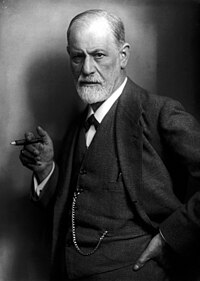Probably no single individual has had a more profound effect on twentieth-century thought than Sigmund Freud. His works have influenced psychiatry, anthropology, social work, penology, and education and provided a seemingly limitless source of material for novelists and dramatists. Freud has created a "whole new climate of opinion"; for better or worse he has changed the face of society (E. M. Thornton).
While few present-day psychoanalysts promote all of Freud’s theories, in the late 20th century Sigmund Freud’s popular psychoanalytic theory, called the Oedipus complex, examined the childhood desire to sleep with the mother and to kill the father. Freud describes the source of the Oedipus complex in his Introductory Lectures (Twenty-First Lecture): "You all know the Greek legend of King Oedipus, who was destined by fate to kill his father and take his mother to wife, who did everything possible to escape the oracle's decree and punished himself by blinding when he learned that he had none the less unwittingly committed both these crimes" (16.330).
According to Freud, Sophocles' play, Oedipus Rex, illustrates a formative stage in each individual's psychosexual development, when the young child transfers his love object from the breast (the oral phase) to the mother. At this time, the child desires the mother and resents (even secretly desires the murder) of the father. (The Oedipus complex is closely connected to the castration complex, the fear of emasculation). Such primal desires are, of course, quickly repressed but, even among the mentally sane, they will arise again in dreams or in literature. Among those individuals who do not progress properly into the genital phase, the Oedipus complex, according to Freud, can still be playing out its psychodrama in various displaced, abnormal and/or exaggerated ways. In Freud's time and for decades after, it was assumed that sexual deviance held clues to the nature of human development. After all, via the Oedipus complex and its female equivalent, the human self was a product of incestuous lust. For Freud of course the Greek play was a symbolic version of the truth: that all men desire their mothers and want to murder or at least replace their fathers. We can see in the way that Oedipus reacts that he does actually feel a measure of guilt from his actions. Much of Freud's interpretation was suggested by Jocasta's response when she attempts to reassure Oedipus when he realizes that he has married his own mother: “No need this mother-marrying frighten you; / Many a man has dreamt as much. Such things/ Must be forgotten, if life is to be endured” (Lines 980-83). Intended to comfort Oedipus, Jocasta suggests (by Freud’s interpretation) that many men dream of sleeping with their mothers and one should just ignore this urge and carry on through life. These lines in the play carry the basis of the Freudian Oedipus complex.
Sources:
E. M. Thornton, The Freudian Fallacy (Garden City: The Dial Press, Doubleday and Company, 1984), p. ix
The Tribal Imagination Civilization and the savage mind, by Robin Fox, Ph.D., D.Sc.
http://www.cla.purdue.edu/english/theory/psychoanalysis/definitions/oedipus.html


No comments:
Post a Comment